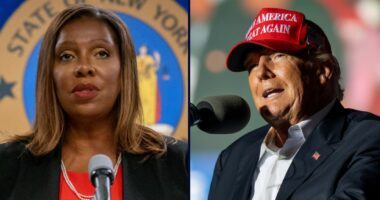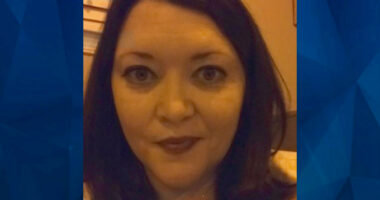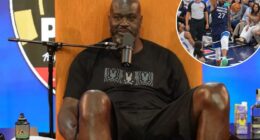
Palm Coast Coast City Council member Ed Danko has since late August made clear, in votes and statements, his staunch opposition to a proposed charter amendment that would remove borrowing limits on Palm Coast government. He’s called the wording of the proposal “deceptive.”
Less clear until now has been his involvement in all but orchestrating a lawsuit filed against the city in an attempt to nullify the referendum.
Dozens of texts Danko exchanged with Jeani Duarte, a Palm Coast resident who was willing to be the plaintiff in a lawsuit, show to what extent Danko was strategizing against the measure, predicating at least one council vote’s outcome on a lawsuit, discussing lawyers, seeking information from his potential recruit and advising her on what not to say once the lawsuit was filed.
Duarte ended up not being the recruit: she didn’t like the way she felt controlled, she said in an interview, and filed her own suit against the measure, though it was immediately tossed out. Danko’s friend, Alan Lowe, ended up filing the lawsuit in September. Danko has continued to battle against the ballot proposal and was part of a closed-door meeting of the council (also called a “shade meeting”) where the council discussed whether and how to contest the lawsuit. It decided to contest it. Danko’s involvement on both sides of the fence is raising questions about the propriety of the dual role.
“You do get involved in things when you’re an elected official, but there’s nothing bad about that,” Danko said, refuting any suggestion that he orchestrated the lawsuit. “No. I was involved in having conversations about the lawsuit. I never recommended an attorney to anyone, and I never was going to pay for anyone.” He said he was surprised when Lowe ultimately filed: people talk about suing, but don’t always follow-through, he said. Lowe did. Danko is not financing it, he said (“I’m not spending a penny”), and doesn’t know how Lowe is doing so. “I had nothing to do with that whatsoever. I just didn’t. I just don’t know what else to tell you. People have conversations all the time.”
To City Council member Theresa Pontieri, an attorney who has sided with Danko on one vote to pull the referendum from the ballot, then reversed in a subsequent vote, Danko’s involvement is a “blatant” conflict of interest that “definitely crosses that line.” Danko, she says, has “betrayed the trust of the residents of Palm Coast.” (Danko’s term ends in November.)
From a council standpoint, Pontieri said after hearing a summary of Duarte’s statements and texts with Danko, “this is a blatant violation of our oath of office, and it’s concerning that we had a council member in a shade meeting regarding a settlement offer from the other side, when it appears that Councilman Danko was essentially on both sides, if he is, in fact, the person or part of the group that was filing this lawsuit, working towards filing this lawsuit, and was strategizing with that side, and then concurrently being on the side of Council and the side of the people. And he’s supposed to be representing the city of Palm Coast and the residents in a shade meeting, making decisions, presumably not based on what he thinks is best for the city, but based on what he thinks is best for the plaintiff in that lawsuit. That’s a blatant conflict of interest, and it’s very concerning.”
Pontieri doesn’t contest Danko’s right to maintain his stance against the ballot measure in votes and opinions or other forums. Any degree of involvement in a lawsuit against the city, however, is a different matter. Danko’s interactions with Duarte in his attempts to recruit her leave little doubt that Danko was doing more than speaking his mind, at times referring to “our attorney,” “our legal case,” “our legal efforts,” to the way “we will kill this in court,” or including himself in the group seeking to go to court.
A Palm Coast resident for eight years, Duarte is retired (she’d owned a bakery) and remains a certified fitness nutrition specialist who recently joined Citizens on Patrol (or COP). She’d come to know Lowe, the former mayoral candidate, when Lowe had done some remodeling in a condo she and her husband were selling. He interested her in the charter amendment issue. She started going to council meetings in late August. Her first texts with Danko are from Aug. 27. “I was tripping out,” she said, recalling when she heard the council discuss the charter amendment. “I was like, Oh, something sounds fishy here.”
Lowe four days later invited her to his podcast. The subject was the referendum question. Danko was also at the mic: “Alfin bonds are the next battlefield,” Danko said, thanking Duarte for seconding his motion to take the referendum off the ballot (Duarte had done so from the floor in an obvious, but humorous, violation of decorum; the motion failed). She had her reservations about the podcast: “They’re kind of like controlling the situation, controlling the narrative,” she said of Lowe and Danko.

Either soon before or soon after the podcast (Duarte isn’t certain about the timeline), Duarte and her husband went to Mezzaluna restaurant at European Village with Danko and his girlfriend.
“So he says, ‘Look, Janie, I can offer you an attorney pro bono,’” Duarte says Danko told her. “He says, ‘I can’t do it, but I need a citizen to do it.’ He says, ‘because I’m in a seated position that I cannot do this.’ And I’m like, yeah, hey, I’ll help out, whatever I can. And we paid for dinner that night. My husband and I paid for our dinner that night. And I was like, Yeah, okay. So he said, ‘Okay: so the attorney will contact you.’”
Danko mentioned Jay Livingston and “a couple of other names” as attorneys, Duarte said. Livingston would end up being one of the two attorneys representing Lowe.
Days passed and no call came. Duarte then issued what she calls a “demand letter” to the council, which she submitted at a meeting before walking out. Danko was texting her “Good job” from the dais, she said, and reminding her that the attorney would be contacting her.
Exchanges between Danko and Duarte, which began before the recording of the podcast on Aug. 31 and stretched into September, document copious interactions about the potential lawsuit.
“I’ve not heard from any attorney as of yet,” Duarte texts Danko the evening of Aug. 30. My husband is already on his way to Georgia. I’m on standby if needed.” Danko tells her that “David Butler will be speaking to the two attorneys Tuesday and then you will be contacted.” Three days later, Danko texts Duarte: “Please text me your full address. Our attorney needs to send you a letter.” (Emphasis added.)
She texts Danko about blocking Pontieri in July 2022. “I don’t blame you,” Danko tells her, and in the same text: “Can you email me a very brief bio for our attorney? very brief, full name, age, occupation and how long you’ve been a resident. Here is my email address:” He gives her his Outlook address, which would not be discoverable in the city’s public record stream, even though emails sent to a private address regarding city business are public records. But it is up to the official to ensure that they are added to the public archive.
The words “Alfin bonds” and “Alfin junk bonds” recur, but many of the exchanges, Duarte’s texts especially, are genuine opinions on public policy–summaries of what she spoke at council meetings, questions about inner workings of the permitting department, a little flattery for Danko (“thank you for being brave”), more choreography from Danko (“Love it! Spread it!” he tells her the afternoon of Aug. 29 in response to a brief video she’d made. “I’ll give you a couple of other talking points tonight”) and the occasional idea, such as expanding the council to seven members.
 But cracks also appear between Duarte and Danko as Danko previews to her his intentions for the Sept. 3 council meeting. “No,” Duarte texts him, “you’re trying to vote to rearrange a temporary wording which still takes away our vote. Stop! And if I’m wrong here, that tells you how unclear it still is.”
But cracks also appear between Duarte and Danko as Danko previews to her his intentions for the Sept. 3 council meeting. “No,” Duarte texts him, “you’re trying to vote to rearrange a temporary wording which still takes away our vote. Stop! And if I’m wrong here, that tells you how unclear it still is.”
Danko clarifies, again making explicit not only his driving role in the lawsuit against the city, but in crafting a motion predicated on a lawsuit, if his motion were to fail: “We can’t change the language on the ballot, not enough time,” he texts. “My motion is to take off ballot. If that fails, then we go to court.”
That night Pontieri voted with Danko in a failed 2-2 motion to remove the referendum from the ballot, or not have it counted. Danko exulted. “Pontieri voted with me to remove,” Danko texted Duarte. “This strengthens our legal case to remove this. I will call you later and explain exactly what I was doing.” He adds: “We won a big victory tonight,” boasting of “a bunch of media coverage tomorrow and Pontieri flip-flop helps us in court.”
Duarte disagrees: “No we didn’t! It’s still going on the ballot. To confuse the masses!” Duarte continues to express reservations. When Danko texts her that Alfin and Council member Nick Klufas are “in the pocket” of developers, she texts: “There are roamers [rumors] that you and Pontieri are as well.” Danko is frustrated: “I’m the one who’s fighting to stop this. We will kill this in court.” Again, an explicit description of his direct role in the litigation before it was filed. But he is clearly enjoying the interactions and riding a high from the council vote, texting Duarte at 11:15 p.m. to ask her if she was still up for a chat.
 Their texts touch on other matters discussed at council, and include Danko’s caution: He explains to Duarte that she “will not be talking with” Marcus Duffy, the city attorney. “He is not the lawyer we have hired.” (Emphasis added.) “Also, please do not post anything online about our legal efforts. We don’t want to alert them.” But Duarte “can’t agree to not talk till I have a conversation with this attorney. Educating the community is important on this issue.”
Their texts touch on other matters discussed at council, and include Danko’s caution: He explains to Duarte that she “will not be talking with” Marcus Duffy, the city attorney. “He is not the lawyer we have hired.” (Emphasis added.) “Also, please do not post anything online about our legal efforts. We don’t want to alert them.” But Duarte “can’t agree to not talk till I have a conversation with this attorney. Educating the community is important on this issue.”
Danko asks her not to “discuss the case with the media once the attorney files. That’s all,” and adds: “I need to know that you can do that or we will need to find another plaintiff. The court is the only way we can pull this from the ballot.” (Emphasis added.)
The evening of September 5, she texted him: “I thought you said that this attorney was pro bono?” It wasn’t: “I just want you to know this is not pro bono,” Danko texts, but this cost[s] you nothing. You are totally free to educate the public, all I was saying was don’t discuss the case” publicly. “You will need to follow the instructions of the lawyer. I need to know this. We are on the same team.”
But Duarte had lost interest in being Danko’s recruit. Danko, in an interview, said he “went down a bad path, but it went nowhere.”
She then informs Danko that she had filed a “class action suit,” though it was nothing of the sort.
In late September Duarte, representing herself, filed suit in circuit court, appending some of the documents she’d sent or received from the city under the heading of an urgent motion for injunctive relief in an effort to stop the referendum. The same day, Circuit Judge Chris France dismissed the suit as not only “legally insufficient” but “nonsensical and any attempt to answer the complaint would be futile.” Duarte’s amended complaint did not fare better.
She’d cobbled together parts of numerous documents Duarte has sent the city–complaints, accusations, allegations, including individual complaints against each of the council members and the city attorney. Most of the material is undocumented, lacks specificity, coherence, or an understanding of basic government functions, much of it copies other documents or announcements, calendar announcements, and Duarte’s own annotations of documents, and none of it appears actionable–as France readily found.
Her main concern is borrowing for the sake of the so-called “westward expansion,” the city’s plan to develop the acreage west of U.S. 1, though that acreage was permitted for two vast developments in the middle of the last decade. “They’re actually going to bankrupt the city of Palm Coast, and they don’t care. They’re going to be doing their project on the other side, regardless of what’s going on here that we need in Palm Coast.”
She says she will try to file again, on her own.
To Danko, he was merely “encouraging her,” he said. “My conversations with her have been all over the map.” He did not describe conversations with Lowe. “Look, I’m glad this suit was filed,” meaning the Lowe suit. “I’m not part of any of the legal conversations other than private conversations with Alan. I’ve praised him for it.”
He did not see any conflicts with his role on the council, or at the closed-door meeting. “At the shade meeting, it was a 3-2 vote,” he said, “and the other side won.”
Local governments are barred from taking votes in a closed meeting. But that’s a different issue.










